JTF (just the facts): A total of 10 large-scale color photographs, framed in white and unmatted, and hung against white walls in the entry area, the front gallery, and the main gallery space in the back. All of the works are c-prints, made in 2011 or 2012. The prints are sized roughly 60×77 (or reverse), and are available in editions of 1+1AP. A monograph of this body of work was published by Nazraeli Press (here) in 2013. (Installation shots below).
Comments/Context: Todd Hido’s photographs are distinguished by their silence and stealth. Relying on evocation and atmosphere instead of literal detail, he has a Japanese sensibility even if the scale of his prints is anything but self-effacing. His compositions are never busy or untidy, as if to direct attention to only one or two things, in isolation from the rest of a transient world.
The subjects are usually familiar and comfortably centered in the frame. In his early monograph House Hunting (2001), he photographed suburban dwellings in twilight or after dark, much as Robert Adams had in Summer Nights. The windows of these houses were sometimes illuminated, sometimes not. In either case, it was the emptiness of the street outside, where Hido stood voyeuristically with his camera, that was his wider concern. If behind those walls some people were having sex or noisy parties, we couldn’t tell and he didn’t want us to know. His photographs prefer keeping secrets to confessing them.
For his third solo show at Silverstein, Hido has continued to make Zen images in the American landscape. The ten oversized prints were taken from his oversized book Excerpts from Silver Meadows, published last year by Nazraeli Press. (Silver Meadows is a street in Kent, Ohio where Hido grew up. No doubt meant to connote luxurious exclusivity in some Midwestern real estate developer’s mind, the territorial noun and precious metals adjective would be quite unnatural, even sinister–like a polluted Superfund site–if the name described an actual place.)
Once again, Hido uses the aura of suburban neighborhoods to build enigmatic drama out of clear, simple scenes, this time in winter light: a white clapboard three-story house and a dark pine swept by a gust of snow; a yard where a crow alights from a bare elm; a frozen pond front; a silhouetted woman and child in the gloaming on the crest of a hill; the glow of distant yellow light between two copses of low bushes.
Hido is often called a cinematic photographer whose images are like pieces in an unfinished puzzle that viewers have to complete in their imaginations. If true, then his indie films need more plot. The “mysteries” he pretends to be exposing don’t seem worth solving anymore, if they ever were. The half-dressed or nude young women in his indoor portraits here are attractive, pouty refugees from a typical fashion shoot, not characters capable of original thought. The grandiosity of his prints, coupled with his tendency to equate blurry focus with intrigue, oppresses everything with mood.
Instead of being celebrated as another storyteller in the David Lynch style—photography has too many of those already—Hido should be appreciated as a photographer who experiments with color as freely and sensuously as a painter. His prints are like canvases, their wide dimensions offering him plenty of space for an object and incident or people to disappear within fields of ashy white or dusky blue. The low-key hues add to the depressed economic air. The frame of every outdoor scene is fogged and streaked by precipitation—like Josef Sudek looking out a window or windshield through wet Rust Belt snow rather than a Prague drizzle.
Thinking of Hido as more of an abstract than a narrative artist gives Excerpts from Silver Meadows the tension it otherwise lacks. The material world in his pictures always seems on the verge of dissolving, and these enveloping shades of light and dark are as much his subject as any pleasures and terrors of domestic comfort the photographs would like to suggest.
Collector’s POV: The prints in this show are priced at $34000 each. Hido’s work has become intermittently available in the secondary markets in the past few years; recent prices have ranged from roughly $2000 to $24000.
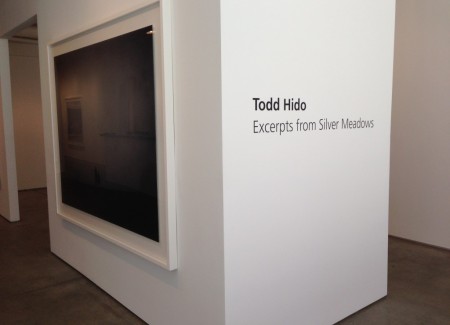
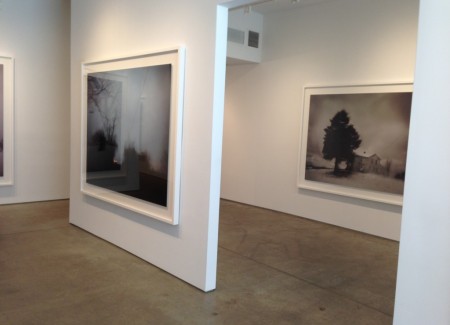
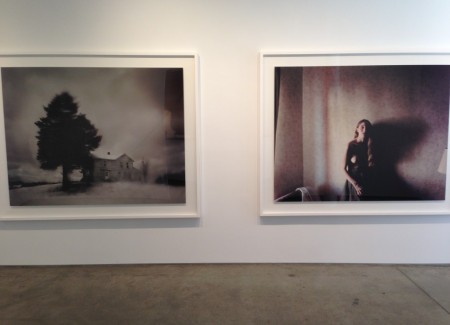
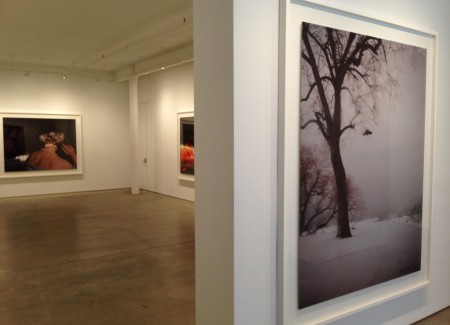







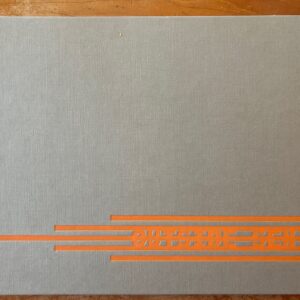
Surprisingly the tree photos seem to work well at that size, and for such a seemingly straightforward subject matter he’s come up with an appealingly subdued melancholia.
As for Todd’s photographs of women, I’d go further than Richard, they seem to me to be wildly misjudged, not sexy, just sexist.